Preparing your dog for summer holidays
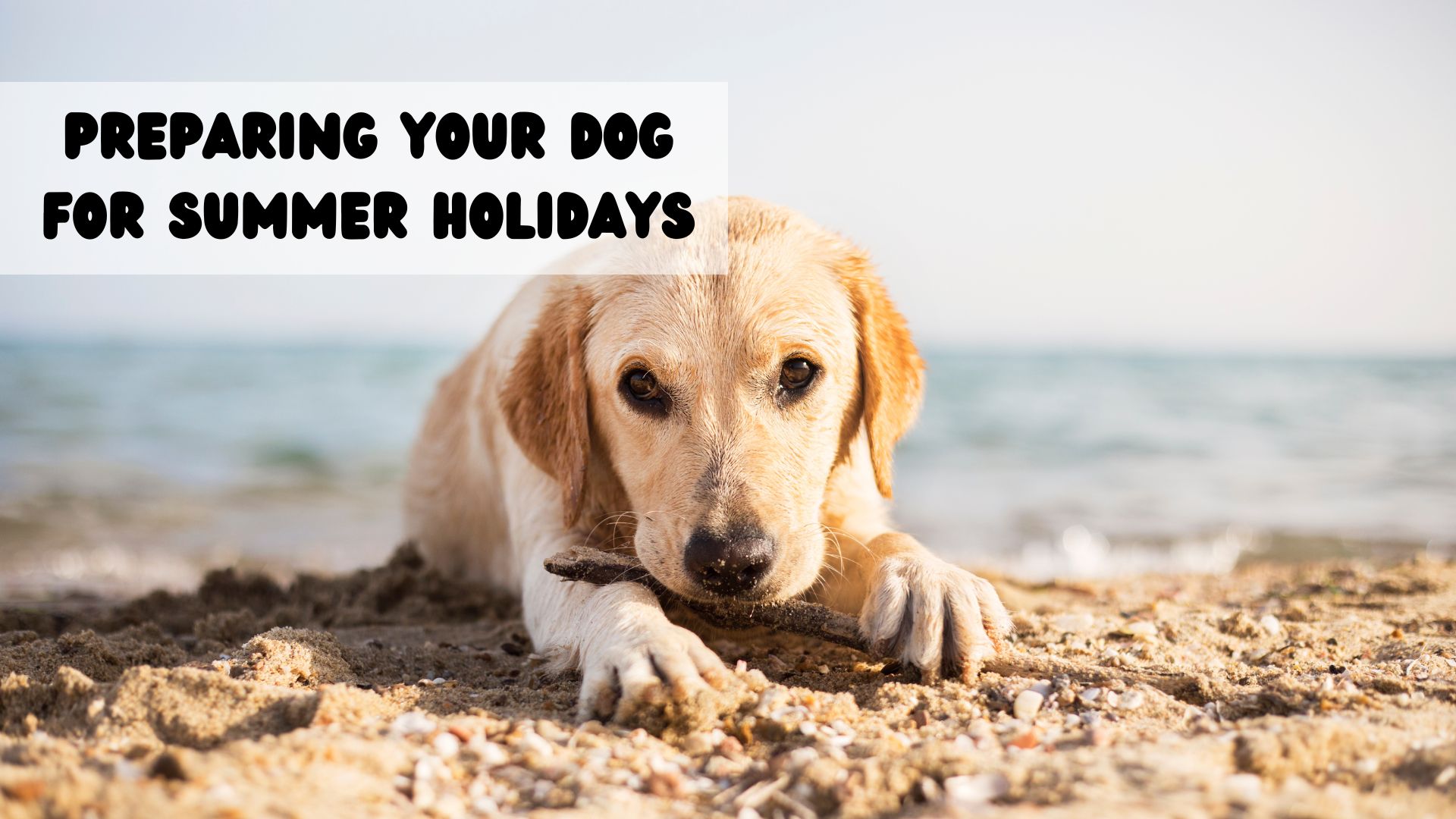
By Roz Pooley, Canine Behaviourist, The Mutty Professor
Dogs owners often enjoy taking their dogs on holiday with them, and the vast majority of dogs enjoy their holidays too. However, some dogs may require extra consideration towards making their family holidays stress free and safe for all.
Here are some suggestions on how we can help prepare ourselves and our dogs for their holidays:
Sleeping Arrangements
Before going away, you should find out whether your chosen accommodation requires your dog to be crated or not, as is the case with some BnBs, self-catering accommodation or hotels.
If you are camping with your dog, consideration should be taken as to how you can ensure your dog is not at risk of escaping.
This means you may need to consider crate training your dog in advance of your holiday, ensuring they are able to go into their crate and sleep without it being a stressful process.
If your dog normally sleeps on your bed with you, then this may not be allowed in some accommodations, so you may need to work on your dog sleeping in a dog bed next to your bed for the night.
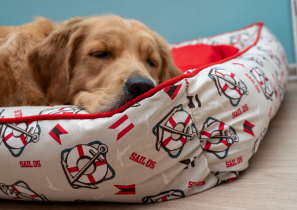
Travel
If your holiday involves a long car journey, you need to make sure that this will not be too stressful for your dog. If your dog gets travel sick or anxious, it may be wise to book a consultation with your veterinarian to see whether medication can ease your dog’s symptoms.
Alternatively, consider employing the help of a qualified and accredited behaviour professional, such as those listed on the ABTC website, to help you work on a de-sensitisation protocol for your dog travelling in the car.
For long journeys, your dog may settle more easily having been for a short walk before travel- ensuring they have fully toileted.
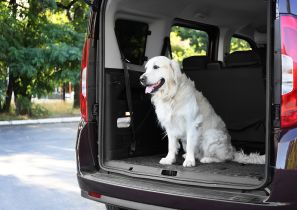
Managing your dog on walks
Being in a new and unfamiliar place can be exciting for many dogs, and unfamiliar locations may bring challenges with knowing where roads, sheer drops/cliff edges and livestock are. It is an unfortunate reality that every year, dogs on holiday fall off cliff edges or end up worrying livestock.
Your dog should have a reliable recall. This means, that not responding to their recall, including from distractions such as other dogs or wildlife, is a rarity or doesn’t happen at all! If your dog’s recall is not reliable in ALL contexts, then they should be walked on a short lead or a longline that you feel confident managing safely.
In preparation for your holiday, give your dog’s loose lead walking and recall training a boost- enlisting the help of professional who uses positive reinforcement if needed. Doing so should make walks more enjoyable, even if your dog has to stay on a lead
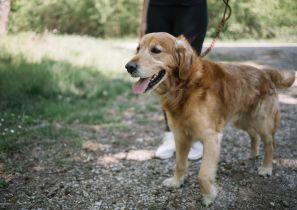
Recognising your dog’s limitations
Older dogs may struggle with long walks, dog’s with structural issues or arthritis may not enjoy being taken up a mountain, young puppies may become over stimulated for being taken to busy tourist towns at peak time and some dogs do not cope well with a deviation from their normal, daily routine.
If your dog is only use to 1 hour of exercise and 23 hours of rest every day, for the rest of the year, then they may not be physically or mentally prepared for such long days.
Help your dog prepare for their holiday by creating slight deviations in their routine, providing their age and general health allows!
If you have a Brachycephalic breed (short or flat muzzled dogs) you must be mindful of their vulnerability to heat stroke. Being walked on a beach or on concrete in hot weather can have dire consequences, so be mindful of when and where you walk them.
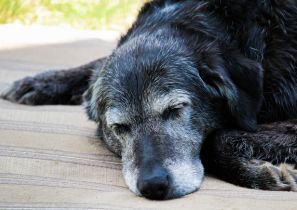
Setting your dog up for success
If your dog is of an anxious or excitable disposition- it’s important you put them in situations that they can cope with.
Not only maybe it be stressful for your dog to be surrounded by other dogs at a busy pub, but if you dog responds by barking- that can have an impact on other dogs or people around you.
Be mindful to put your dog in situations that they have the emotional resources and skills (training) to support the experience being positive for all.
In some situations, you may need to choose the table at the pub in the far corner away from all the other dogs, or you may need to avoid walking your dog down the busy sea front. If this becomes limiting for you, then it’s better to make a note of what training and support your dog needs before the next holiday.
In some situations, it’s potentially in the best interests of certain dogs that they are left at home with a pet sitter or are taken to a licensed boarding establishment.
If you are going to use a pet sitter, be sure to meet them in advance and ensure they know how to manage your dog well in your absence, being as consistent as possible with what you do on walks and at home.
If you are using a dog boarding establishment, it’s a good idea to do a trial period with your dog. This may be first and initial visit with you present, and then a short trial period without you- such as for half a day. You may then decide or be required to do a 24-hour overnight trial period.
Be sure to do this in plenty of time, so that if there were any problems, you have more than enough time to find and alternative and work through the process again.
It's not easy to go on holiday without your dogs, but in some instances, it is less stressful for all involved in the long run. If we are going to take our dogs with us, it’s important we put the work in to ensure they are going to equally enjoy their holidays and that they do so safely.





